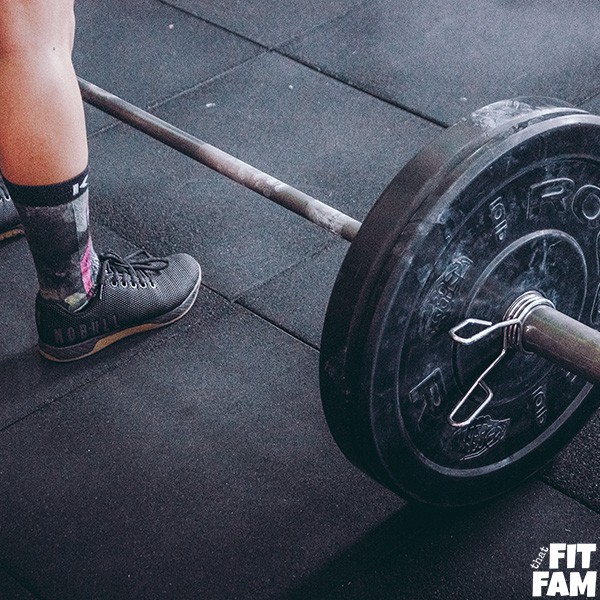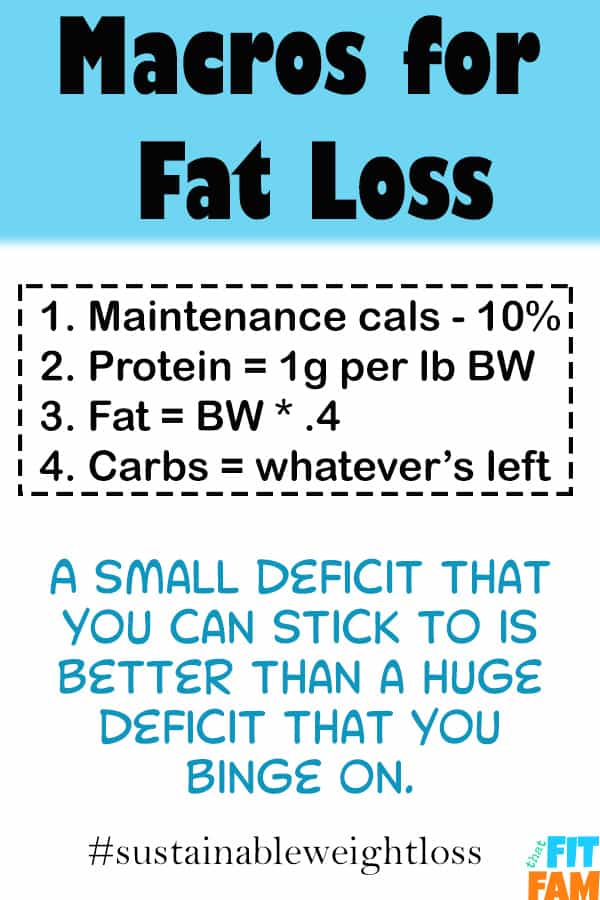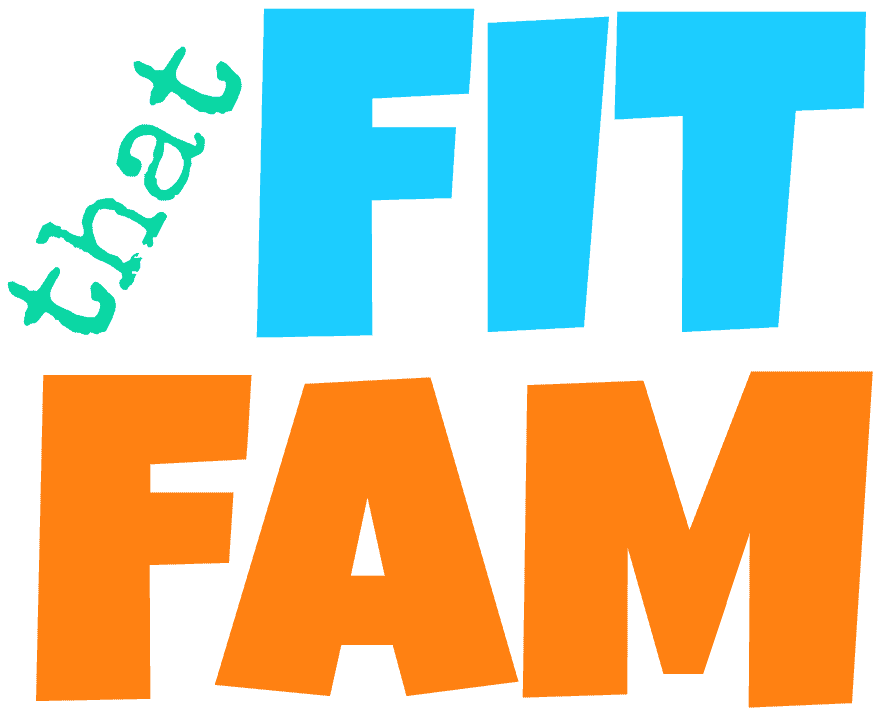When it comes to IIFYM, there are different macros for fat loss vs muscle gain. Finding your ideal macro-nutrient ratios will take some fine tuning and patience.
I don’t like to give percentage ranges because they are very vague and not how you should approach it.

Some people might say when you’re in a fat loss phase, 50% of your diet should come from protein. But, it’s misleading.
When switching from a muscle gain phase to a fat loss phase, your protein intake actually hardly changes at all. The percentage of your diet coming from protein does increase though. That is because you are eating less calories overall.
120 grams of protein with total calories of 1600 will be a higher protein percentage than if your total calories was 1800.
Best macros for weight loss
The best fat loss macros are ones with a very small deficit. Basically when switching to a fat loss phase your goal should be to lose weight on the most calories possible.
This means that instead of dropping 500 calories immediately because you want to lose a pound a week, your best bet would be to gradually decrease your calories starting at a deficit of about 10% from your maintenance calories. And then only decrease your calories from there when you plateau.
So if you maintain your weight on 2000 calories, you would drop down to 1800 calories for a deficit of 200 a day.
Why you shouldn’t drop your calories so low.
I know when we set our mind to lose weight, we want to do it fast. The problem is, when we drop our calories dramatically we have no where left to go from there when we plateau.
Imagine plateauing at around 1200 calories a day. What do you do now? Drop those numbers further? Add in more cardio? It’s a tough spot to be in.
Not to mention, dropping calories rapidly can cause you to lose more muscle mass than necessary! A slow, minimal deficit, along with strength training and protein intake will help you maintain as much muscle mass as possible.
Calories also provide the energy we need to power through our day. Not eating enough can slow us down (decrease NEAT) and even lead to less effective workouts.

NEAT.
Part of that plateau is caused by NEAT. NEAT is all the calories we burn normally not counting eating, sleeping, or workouts. These are the calories burned just living your life doing daily tasks like standing, walking to the fridge, cleaning, etc.
When our body adjusts to eating less calories, our NEAT naturally decreases because our body is trying to conserve energy. You may not even notice the change. This means you are burning less calories in a day now and that can be why you have plateaued.
Keeping calories higher for as long as possible and incorporating refeed days can keep your NEAT high.
How to calculate macros for fat loss
I already mentioned keeping your calorie deficit small. In addition to that you want to make sure you keep your protein intake high. I would go as high as 1 gram of protein per pound of lean body weight.
Keeping your protein high will help preserve your muscle mass and also help you stay full on lower calories.
To further target fat loss, you also want to incorporate strength training. Muscle takes more energy to maintain than fat. It’s only natural for your body to want ditch the muscle when you’re in a calorie deficit. Lifting weights signals to your body that you still need that strength.
The steps I would follow:

- Take your maintenance calories and subtract 10%. This is your new calorie goal. Slow and steady wins the race.
- Protein=1 gram of protein per pound of body weight
- Fat= your body weight * .4
- Carbs = whatever is left
To calculate your carbs you would do:
Total calories – (protein grams * 4) – (fat grams *9) then divide by 4 to get your carbs in grams.
Remember, a gradual decrease in calories is your best bet. Too high of a deficit is tempting but most of the time it isn’t sustainable. Aside from everything I mentioned earlier, an unrealistically low calorie diet could lead to binging and undo any progress you may have made.
Good luck in your journey!
